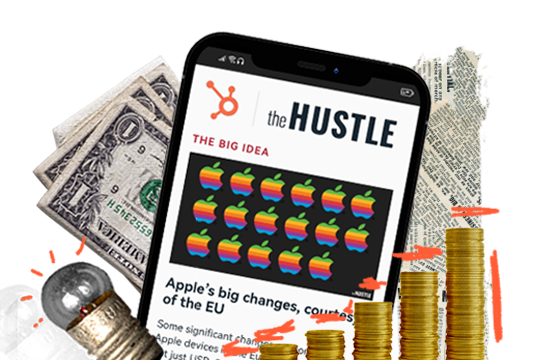- The Modern Warfare
- Posts
- Trump's New Dawn: US-China Relations Shift from Confrontation to Cooperation
Trump's New Dawn: US-China Relations Shift from Confrontation to Cooperation
From Tariffs to TikTok: How Trump's Second Term Signals a Diplomatic Pivot with China
Paying the bills
Invest Smarter with Digital ETPs
DeFi Technologies (US: DEFTF & CAD: DEFI.NE) is transforming traditional finance by offering regulated access to over 60 digital asset exchange-traded-protocols (ETPs). Empower your portfolio with secure solutions for Bitcoin, Ethereum, Solana, Ripple and beyond.
Links We Like
JUST IN: 🇳🇴 Norway’s Central Bank’s fund reveals owning $500 million of MicroStrategy shares.
— Bitcoin Magazine (@BitcoinMagazine)
9:48 AM • Jan 30, 2025
US President Trump talks about “billions and trillions of dollars” that countries like China will pay if he imposes tariffs. The Post’s Yonden Lhatoo explains why it just does not work that way.
— South China Morning Post (@SCMPNews)
4:00 AM • Jan 30, 2025
The Potential Conflict Between Musk’s Business Interests and Trump’s China Strategy
As President Donald Trump embarks on his second term, his administration is already signaling its intention to adopt a hardline stance against China, building upon the tough policies from his first presidency. However, the success of this approach could be jeopardized by a significant conflict of interest involving one of Trump’s most high-profile allies: Elon Musk. Musk, the billionaire CEO of Tesla, X (formerly Twitter), and SpaceX, has deep business interests in China that may complicate his influence within the Trump administration, particularly when it comes to policies affecting Beijing.
Elon Musk’s Growing Influence in China
Musk's relationship with China is no secret. Tesla, the electric vehicle manufacturer he leads, has made significant strides in the Chinese market, with the country becoming Tesla’s second-largest market after the United States. In 2024 alone, Tesla saw an 8.8% increase in vehicle sales in China. Meanwhile, SpaceX's Starlink network, X (formerly Twitter), and other ventures also have important ties to China, and Musk's actions often align with Chinese interests—sometimes even echoing Beijing’s positions on various geopolitical issues.
Most notably, Musk has been vocal in advocating for greater access for X in China, despite the country's heavily censored internet. He recently argued that if TikTok, owned by the Chinese company ByteDance, remains accessible in the U.S., then China should allow X to operate freely as well. His public stance on this issue has raised questions, especially since Musk has aligned himself with Chinese Communist Party (CCP) rhetoric on multiple occasions.
The Allegations of a Conflict of Interest
Critics have increasingly pointed to Musk’s relationship with China as a potential conflict of interest that could undermine U.S. policy, particularly when it comes to national security and China. Mike Studeman, a retired rear admiral and former commander of the Office of Naval Intelligence, has voiced concerns about Musk’s business dealings with the CCP, calling him "compromised" and accusing him of being a "Chinese sympathizer of high order." Studeman suggested that Musk's deep involvement in China could influence his policy decisions, especially in his new role as part of Trump’s Department of Government Efficiency (DOGE).
One specific example that has drawn attention is Musk’s statements about Taiwan. Musk has echoed Chinese government claims that Taiwan is "part of China," a position that directly contradicts the U.S. stance on Taiwan’s sovereignty. Musk's influence over X, which has become a major platform for both political discourse and news, means that his views could amplify Chinese propaganda. Moreover, Musk’s control over SpaceX’s Starlink satellite network raises national security concerns, particularly if Musk were to restrict access to the service in regions like Taiwan, where China has become increasingly aggressive.
China’s Praise for Musk and the Potential Impact on U.S. Strategy
Musk’s relationship with China has drawn more attention following his praise from Chinese officials. Zhang Heqing, a Chinese diplomat, has been particularly vocal in his admiration for Musk, lauding him as a "visionary tech titan" and a "global icon." Over the past few months, Zhang has posted extensively on X, praising Musk’s achievements and aligning himself with Musk’s rhetoric. The praise Musk has received from Chinese officials only deepens concerns that his business interests in China are influencing his actions, potentially undermining U.S. foreign policy.
Tuvia Gering, a researcher at the Atlantic Council, has noted that the Chinese government may be using Musk’s influence to divide U.S. society and weaken America’s global standing. Given the magnitude of Musk’s influence in the tech world, his alignment with Chinese narratives could serve to destabilize U.S. policies and create fractures within American public opinion on China. It’s clear that Beijing recognizes Musk’s impact and seeks to exploit it to further its own strategic goals.
Refind - Brain food is delivered daily. Every day we analyze thousands of articles and send you only the best, tailored to your interests. Loved by 510,562 curious minds. Subscribe. |
Musk’s Role in Trump’s China Strategy
As Trump prepares to adopt an even tougher approach to China in his second term, Musk's potential conflict of interest is a major complication. Trump has signaled that he intends to continue the hard approach he championed during his first presidency, which included imposing tariffs on Chinese goods and challenging China’s growing economic influence. Recent reports suggest that Trump may raise tariffs again as early as February 1, a move that would further strain U.S.-China relations.
However, Musk’s business interests in China could present a challenge for the administration’s policies. As an influential ally of Trump, Musk has the ear of the president and his advisors. His position within DOGE could enable him to offer advice that would favor Chinese business interests, perhaps even undermining the broader goals of Trump’s China strategy. The U.S. must be cautious about Musk’s influence and carefully consider how his business ties with China might skew U.S. decision-making.
Musk’s Opposition to China-related Provisions in U.S. Legislation
Musk’s influence extends beyond his role as a business leader. His actions have extended into U.S. politics, as evidenced by his opposition to provisions in a recent bipartisan spending bill aimed at limiting China’s influence in sectors like semiconductors and quantum technology. Originally, the bill included measures that would have restricted Chinese investments in sensitive sectors, such as semiconductors and artificial intelligence. However, Musk voiced his opposition, and the final version of the bill removed these provisions.
Musk’s lobbying against these measures further illustrates how his business interests in China could undermine U.S. efforts to secure its technological edge over China. The removal of these China-related provisions, in part due to Musk’s influence, raises questions about how much sway he wields over U.S. policy.
The Global Implications of Musk’s Influence
Musk’s growing influence in both the U.S. and China highlights the complex nature of global business and geopolitics. His success in China, combined with his technological prowess, has granted him a unique position in global discussions on both economic and security matters. However, this influence is not without its challenges. The fact that Musk’s business interests are deeply intertwined with China’s objectives complicates the already delicate U.S.-China relationship.
For the Trump administration, maintaining a tough stance on China while also managing Musk’s influence will be a delicate balancing act. On the one hand, Trump’s “America First” policies, including confronting China on trade and security, require a firm approach. On the other hand, Musk’s business empire, particularly Tesla’s success in China, could create tensions with these policies.
Conclusion: The Complex Dynamics of Musk, China, and U.S. Policy
As President Trump embarks on his second term, the intersection of Musk’s business interests and U.S. policy on China represents a critical challenge. Musk’s growing influence, both in China and within the Trump administration, could undermine the president’s tough approach to Beijing, especially on issues of national security. While Musk’s role as a tech magnate has made him a powerful figure, it also places him at the heart of a complex geopolitical struggle.
In navigating these tensions, the U.S. must carefully weigh Musk’s business interests against its broader national security goals. As China’s influence continues to grow on the global stage, the ability of U.S. leaders to maintain a unified and strategic approach will be tested in unprecedented ways. Time will reveal whether Musk’s allegiances to China and his involvement in U.S. governance can coexist without compromising national interests.
If you enjoy this newsletter, please consider sharing it with your friends and business contacts by clicking the button below. ⬇️
Thank you for reading this far. Please share your thoughts and join the conversation in the comment section below.
About The Modern Warfare
We strive to provide insightful and unbiased reporting on the most pressing issues of our time. Subscribe to our newsletter to stay informed and ahead of the curve.
Stay informed. Stay vigilant. Stay ahead.
The Modern Warfare Team
Disclaimer: This newsletter is for informational purposes only and should not be construed as financial or political advice.






